Onewheels are single-wheel hands-free electric scooters. One large wheel is enclosed by two platforms on which to stand. In skateboard orientation (at a right-angle to the axis of rotation), you lean one foot forward to go forward and vice versa.
On the other hand, a hoverboard is a hands-free electric scooter. They have two wheels of varying diameters connected by a platform on which you stand.
Let’s see how they differ and which one will suit you best!
Hoverboard – Pros & Cons
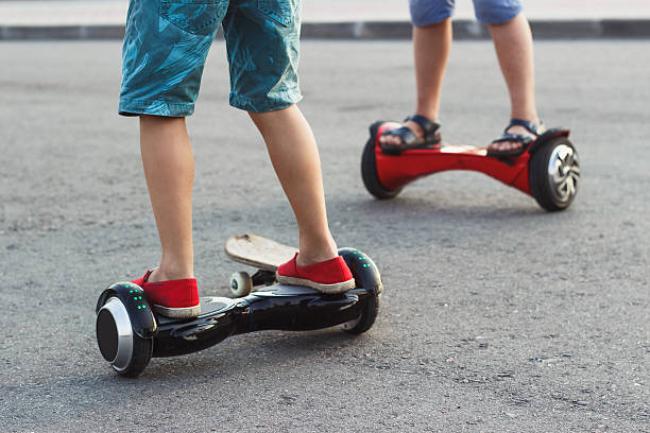
Pros
- They’re relatively easy to learn. If you’re a beginner, hoverboards are a great place to start with electric scooters
- Hoverboards are small devices that don’t weigh much. If you can pick it up, you can take it anywhere
- They’re about the length and width of an average skateboard, so you should have no trouble storing or packing it
- Transport costs don’t exist. Since they’re man-portable and small in dimensions, you won’t have to worry about forking out any cash to get them places
Cons:
- Easy to learn, but they’ll take some getting used to. In the meantime, you could easily be thrown. Maybe you hit a pebble, accelerated too fast, or just lost your balance
- Fire accidents with Lithium-Ion batteries aren’t common, but they can happen. Make sure you take proper care of your battery, or it could, although very unlikely, set on fire
- Airports would be the perfect place to use a hoverboard. Unfortunately, you can’t
- You ride it facing forward, so you have to depend on your vertical balance which is very sensitive
Onewheel: Pros & Cons
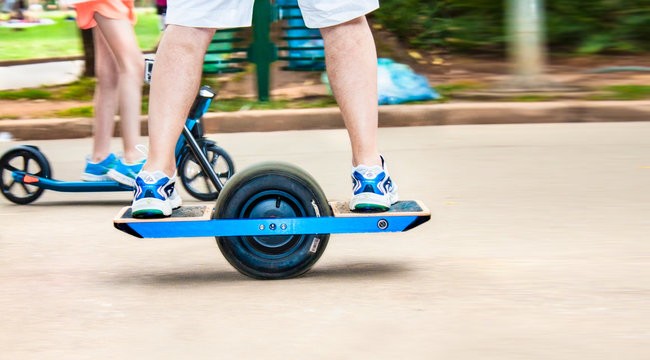
Pros
- Onewheels are fast. They can achieve top speeds of up 19mph on a smooth, flat surface
- Compared to most similar devices, Onewheels can handle rough surfaces quite well
- Charging time is fast for Onewheels, with some models and charging devices achieving a full charge in as little as 20 minutes
- A Onewheel can tackle inclines of up to 15°
- You ride a Onewheel like a skateboard, giving you the variable balance of both your feet positioned on either end of your center of balance
Cons
- You could be paying anywhere between $950 to $2000
- A big motor for a big wheel makes a bit of noise
Key Difference Between Hoverboard vs Onewheel
Stance
Hoverboard
You ride a hoverboard “forward” facing or with your feet pointing at a right angle to the rotation axis of the wheels. This doesn’t afford much stability since you’ll be depending entirely on your vertical stability, which can get pretty iffy if you’re getting used to the throttle.
Onewheel
On a Onewheel, you ride “side-on”, almost exactly like a skateboard. The big difference is there’s a giant wheel sticking out the middle of the board.
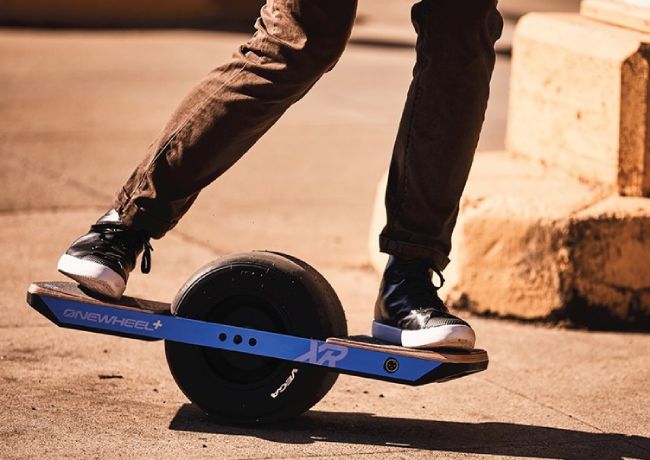
Which One Wins?
Onewheels are far easier to balance on. You position your feet on either end of your center of balance like a skateboard, which allows you to shift your body backwards and forwards.
Wheel size
Hoverboard
Hoverboards come with wheel diameters of between 6” to 10” with 10’s being better suited to higher speeds.
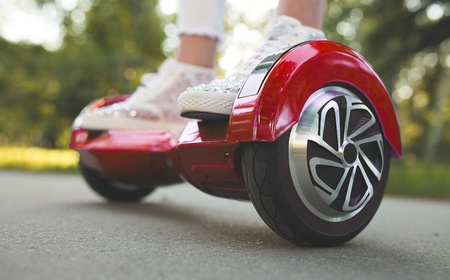
Onewheel
The smaller Onewheel Pint has a tire diameter of 10.5” while the Onewheel XR has a tire diameter of 11.5”
Which One Wins?
In terms of cost and weight, the hoverboard’s smaller tires win. You can expect to be paying more for Onewheel tire replacements.
Handling
Hoverboard
Hoverboards aren’t as fast as the Onewheel but they’re easier to maneuver. They can handle most tight corners provided they can fit around them considering their wide profile.
Onewheel
The Onewheel is fast and just as agile. You may even be tempted to ride it like an actual skateboard since it can handle a few tricks and stunts.
Which One Wins?
The Onewheel has the speed and cornering ability. Plus, its thin profile makes it very well suited to nailing the tightest turns.
Tricks & stunts
Hoverboard
They aren’t designed for it, and you won’t get many out of them. Your orientation makes it easy to jump 180 and flip your stance. Plus, the wheels are capable of handling some holes in the surface. Other than that, hoverboards won’t manage much else.
Onewheel
Onewheels can manage small ramps and low ledges (like a pavement). They’re better suited to rough terrain so you can run them along some harsh surfaces too. Overall, they aren’t that dissimilar from skateboards.
Which One Wins?
The Onewheel can, to an extent, be taken around some pretty demanding terrain. It’ll stay upright if you try some straightforward tricks on it. The Onewheel wins here.
Uphill Climbing
Hoverboard
Hoverboards aren’t advised to climb hills greater than 18°. More powerful models may be able to manage some steeper inclines.
Onewheel
A Onewheel shouldn’t have an issue climbing hills of up to 15% grade or 9°.
Which One Wins?
Clearly hoverboards handle steeper inclines far better than Onewheels. They also have the incline-assist technology, taking the effort out of climbing and descending hills.
Terrain Handling
Hoverboard
The tires on a hoverboard are best suited to smooth urban surfaces like pavements and indoor floors. While they can handle small holes in the road, they won’t dominate any rocks or uneven ground.
Onewheel
The tire of the Onewheel is one you find on a Go Kart. They handle rough surfaces well and can be taken off-road.
Which One Wins?
The Onewheel has a tire more capable of handling extra-urban areas and bumpy ground, so it wins this one. Your hoverboard should really be kept to the pavement.
Turning Circle
Hoverboard
Hoverboards have a motor for each wheel, so you can rotate on the spot. This gives the device a zero-turning circle so you can spin around until you fall over.
Onewheel
The Onewheel won’t manage a zero turning circle since it has nothing to pivot around. You can pull tight corners but you won’t spin on the spot.
Which One Wins?
If you’re looking for something to make you dizzy, the hoverboard has you covered. Or maybe you just need to change direction without moving anywhere first. That comes in handy.
Range
Hoverboard
Hoverboards will get you up to 15 miles if you ride it smooth and with good pace. Smaller and cheaper models generally have less range
Onewheel
The Onewheel Pint can go as far as 8 miles on a single charge. The Onewheel+ XR ranges between 12 to 18 miles on a charge.
Which One Wins?
The Onewheel XR beats both its other model and the hoverboard when it comes to range. If you’re price sensitive however, the hoverboard will get you further.
Self-Balancing
Hoverboard
Hoverboards feature self-balancing technology, simplifying your ride. While you’ll still have to keep yourself upright with your own balance, the hoverboard itself uses a gyroscope to keep itself vertical against any forces.
Onewheel
If you’re an adept skater, you’ll find the Onewheel closer to what you’re used to. For beginners however, the lack of any self-balancing technology makes for a slightly steeper learning curve.
Which One Wins?
Hoverboards, with their built-in gyroscopes, have a slightly simpler ride as they’ll adjust to remain upright. This wins against having to maintain the Onewheel’s proper orientation yourself.
Easy to Learn
Hoverboard
The hoverboard doesn’t feel like anything you might have ridden before. However, the learning curve is small. Step on, the hoverboard balances itself. Simply lean forward and lean back. Once you’ve gotten used to the throttling and you’ve developed some balance, they’re easy.
Onewheel
The Onewheel has slightly more intuitive controls. That isn’t to say it’s easier. They’re similar to skateboards, and skateboards can be hard to master. The lack of auto-balancing is notable, and doesn’t make the Onewheel beginner-friendly
Which One Wins?
Generally, you’ll find hoverboards easier to learn. Unless you have some prior experience with boards, the Onewheel is a complicated device.
Aesthetics
Hoverboard
Initially extremely trendy, hoverboards have fallen out of favor with the public. Whether they look cool to ride is debatable. If you really know what you’re doing you can pull off a good look. If you’re still learning the ropes, maybe your arms are flailing around trying to maintain balance, you probably won’t look as good.
Onewheel
Like most things, beginners won’t look very good riding one. If you know your stuff however, there’s nothing stopping you cruising around town on a Onewheel looking futuristic (in a good way).
Which One Wins?
Zipping around on a futuristic skateboard probably looks better than floating on a pair of wheels. For us at least, the Onewheel wins this one.
Customization
Hoverboard
There are plenty of options to deck your hoverboard out in decals and skins. If you’ve got the spare time on your hands, you could even hook up some new lights or add LED’s to your device.
Onewheel
There isn’t much room for accessorizing besides the footpads. However, the official Onewheel site offers a range of customization packages featuring guard rails, fenders and bumpers, a stand for your device, and more.
Which One Wins?
You won’t get much in the way of official customization from the factory for your hoverboard, but there’s plenty of aftermarket shopping you can do. Onewheels on the other hand, come with packages you can add to your order, making your Onewheel your own. For this, the Onewheel wins.
Model Selection
Hoverboard
Hoverboards are produced by a wide range of different firms, all offering their own spin on the popular device. There’s a variety of different models to choose from, each unique to their manufacturer.
Onewheel
The Onewheel is a proprietary device manufactured by Onewheel. They produce the Onewheel Pint, Pint X and Onewheel GT.
Which One Wins?
If you’re looking for variety, there are plenty of hoverboards to choose from. Far more than the three offered by Onewheel. Hoverboards win.
Weight Difference
Hoverboard
Hoverboards generally weigh around 25lbs, depending on wheel diameters.
Onewheel
Onewheels can weigh between 23 and 26lbs depending on the model.
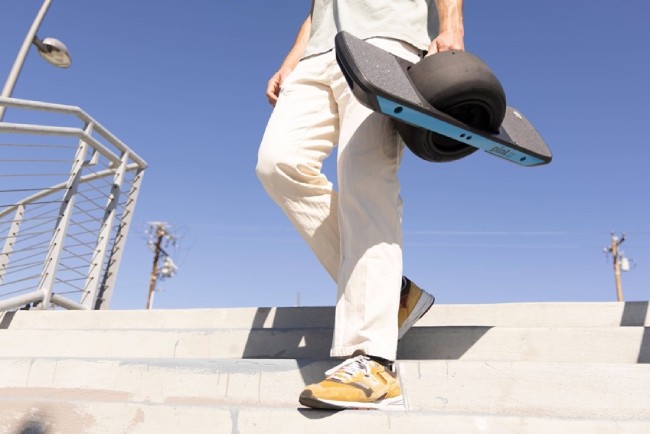
Which One Wins?
The Onewheel Pint is lighter than most hoverboards. Heavier models are generally lighter than off-road hoverboard models. In this case, the Onewheel wins.
Dimensions
Hoverboard
Hoverboards are generally around 28.5in wide.
Onewheel
The smallest Onewheel model (Onewheel Pint) is 30in wide. Bigger models like the GT are only slightly wider.
Which One Wins?
Hoverboards have a more favorable profile compared to the Onewheel, being slightly less wide.
How safe are they?
Hoverboard
Besides self-balancing technology, hoverboards have no safety features to speak of. You’re relying on yourself if you get thrown.
Onewheel
Onewheels don’t have any programmed gyroscopes, so your balance depends on you. This adds to the complete lack of safety features on the device.
Which One Wins?
The only real difference is the hoverboard’s self-balancing feature, making it the winner. Either way, wear a helmet.
Price Range
Hoverboard
Hoverboard prices can range between $183 and $327 depending on the model and wheel diameter.
Onewheel
The cheapest first-hand Onewheel will cost just over $1,000 while other models easily go beyond the $2,000 mark. If you’re on a budget, you’re best off looking for old ones being resold.
Which One Wins?
Hoverboards are far cheaper than Onewheels, whether they’re new or old.
Who should get a Hoverboard?
If you’re looking for stability, a second wheel and some gyroscopes might be more your preference. Hoverboards are designed for indoor/urban casual use. They were trendy among kids and appropriate for them.
Hoverboards clock in much lower top speeds compared to a Onewheel, which might put the parent’s worries to rest.
Who should get a Onewheel?
If you’re an avid skater or keen off-roader, the Onewheel is a fitting electric scooter for you. Faster, more agile, and with the wheel to tackle serious terrain. It’s the experienced rider’s top choice.
There are no safety features to speak of and they max out at more than twice the top speed of a hoverboard. Onewheels are good for risk-tolerant riders and adults looking for something sleek and fast.

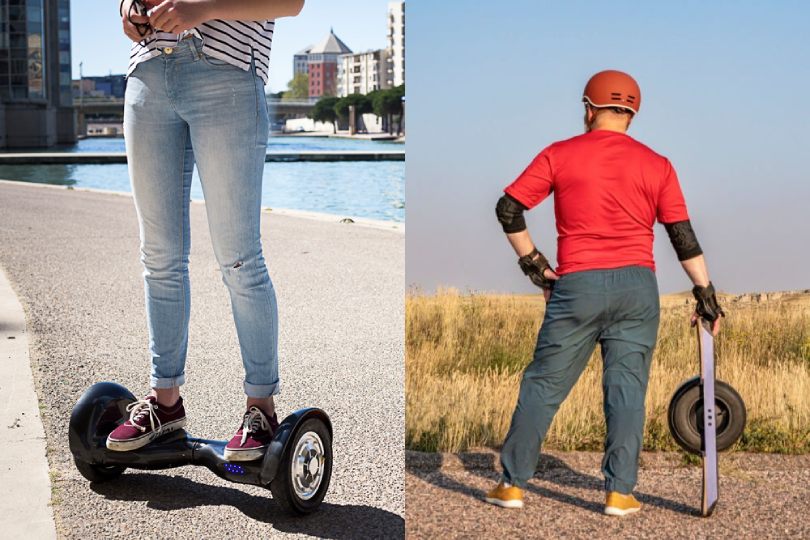

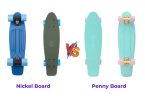
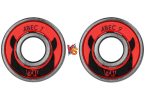
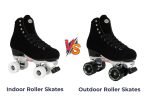
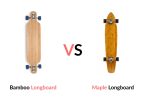


Leave a Comment